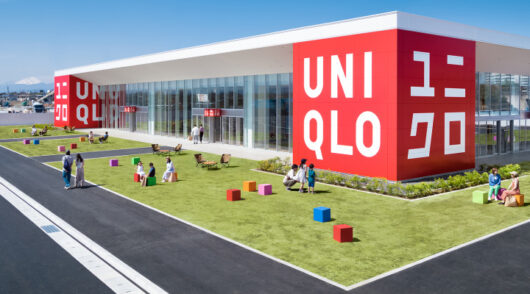Mindset and talent are the two factors holding back the Hong Kong e-commerce sector, according to a senior Google executive.
Speaking at the sell-out HKRMA 2018 Hong Kong Retail Summit this morning, Leonie Valentine, MD sales and operations at Google Hong Kong, said that compared with other major cities around the world, Hong Kong remains in the early stages of digital transformation.
Here, where retail is a key driver of the economy, e-commerce accounts for just 4.68 per cent of sales.
Yet across Asia-Pacific, 17.6 per cent of retail sales will be online this year.
Of the small percentage of retail sales conducted online in Hong Kong, just 37 per cent is on mobile (m-commerce). In the mainland, that figure is 66 per cent and China now accounts for two-thirds of global m-commerce sales, driven by its mobile-first audience. Sales by m-commerce in China are expected to triple by 2021.
Valentine dismissed the ubiquitous argument that the city’s dense urban layout is the reason Hong Kong e-commerce penetration is so low.
“It’s the same argument I heard in 2011 when I arrived in Hong Kong, when I questioned why I couldn’t buy a mobile phone or groceries online here. ‘Oh, there’s no need,’ was the reply. ‘There’s a shop on every corner in Hong Kong. No one shops online.’
“Should I tell that to the millennials in my team? They were already buying dresses from Korea, shoes from Taobao and books from Amazon in 2011. Yet we really didn’t have as much of a digital industry here then,” said Valentine.
“So while digital investments by some retailers have lagged behind, most consumers have actually embraced online shopping.”
Last year, 58 per cent of non grocery sales were influenced by a digital touchpoint, compared with just 13 per cent in 2004.
“Today’s consumer wants to compare products, features, price, benefits, etc, before they start their purchase process. Eighty-one per cent of the population is connected to the internet. Ninety-eight per cent of smartphone users go online at least once a day. So Hong Kong should rank really highly in digital integration.”
But it doesn’t.
“There are two things that hold back Hong Kong. Mindset – in terms of the willingness to embrace new things – and talent. One of the things we really need in Hong Kong is to have a mindset that change is good, that embracing digital is not about distrusting what you have today; it is about complementing that for the benefit of your customers.”
Those customers are already online, said Valentine. “Everybody here is online: 98 per cent of smart phone users – and that’s everybody – are online at least once a day, from an eight-year old to an 80-year old. And yet where are we? Where are our government services today… on mobile? Where is the ability for you to be able to easily find what you are looking for online?
“I want to buy a new couch. I can’t find one. I’m searching and I have money to spend and I cannot find a retailer in Hong Kong easily on mobile or on my desktop that has the product that I want. I find that really interesting in a city that is as modern and connected as Hong Kong.”
Those are her two reasons for Hong Kong e-commerce lagging the rest of the region, she said. “It is very much about the mindset and it’s about having the right talent to drive a lot of the adoption of these ideas.”
“Take a risk”
Another speaker, Yann Bozec, president and CEO of Coach China, echoed Valentine’s comments on the mindset.
“I love to be surrounded by millennials and listen to what they do and how they do it. Even further I am learning a lot from my eight year old daughter about digital [technology]. I think it is about listening and looking at how people, especially younger people, are engaging digitally.
“[It’s about] being inspired by them and not being shy to take risks and try new things, including new applications.”
Bozec said besides established giants like Google, a lot of smaller, upcoming applications are making their way onto the market.
“Businesses who are early adopters and taking some risks can really take a lot of benefits.”
Retail “a pillar” of Hong Kong
The 2018 Hong Kong Retail Summit was opened by the SAR’s chief executive Carrie Lam, who congratulated the HKRMA on its 35th anniversary.
“The retail industry is an important pillar of the Hong Kong economy, contributing about 4 per cent of our GDP and employing some 270,000 people. I am pleased to note that retail sales last year enjoyed moderate growth in both value and volume… with the forecast of a sales increase this year in the 3 to 4 per cent range.”
Other speakers included HKTV Network chairman Ricky Wong, HKRMA chairman Thomson Cheng, who is also president of Walton Brown, Asia Miles CEO Stephen Wong, Facebook’s Creative Shop head Kitty Lun and Maxim’s Group’s head of central marketing Kanson Ng.






